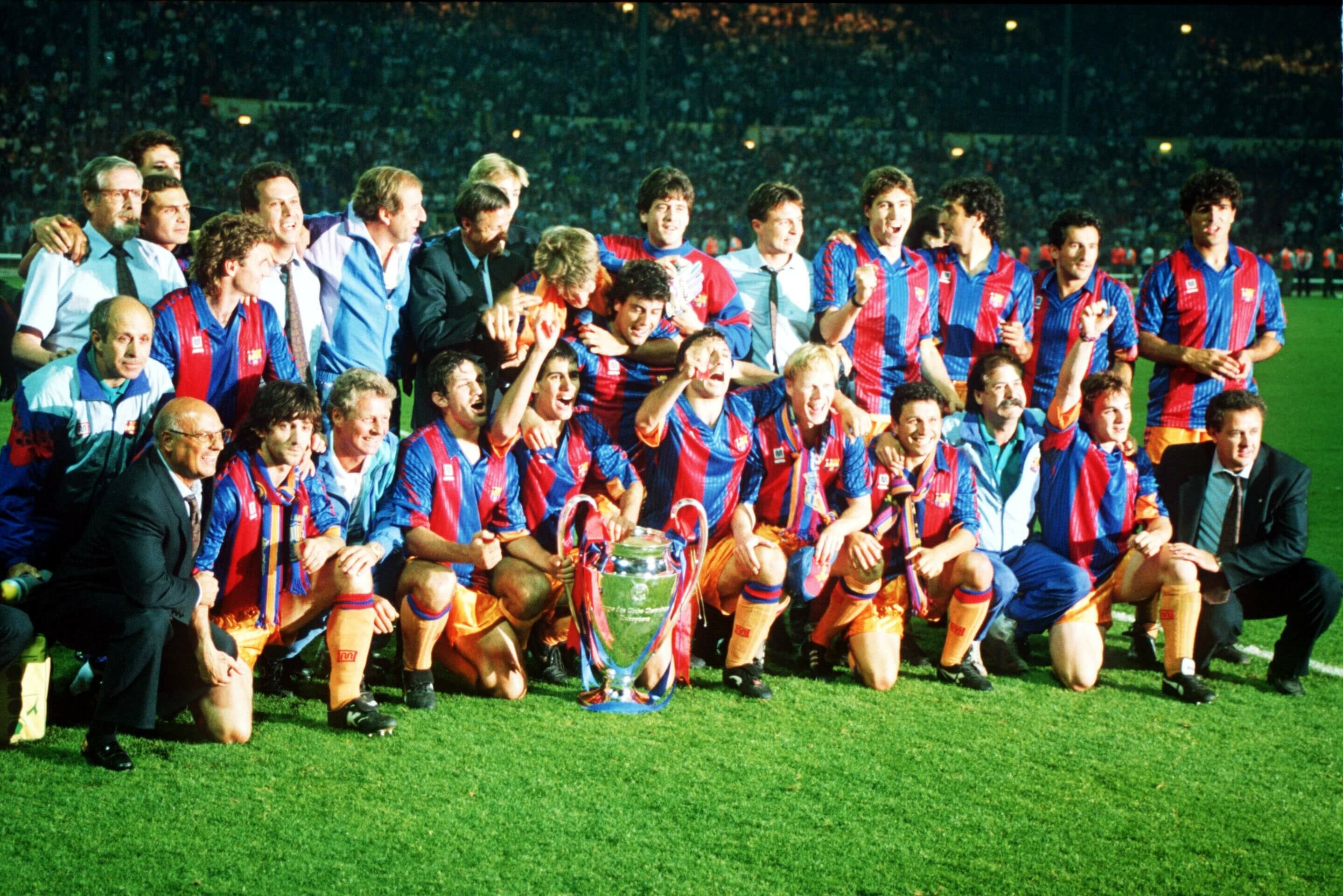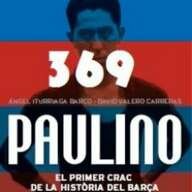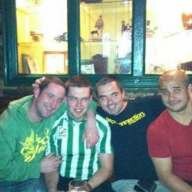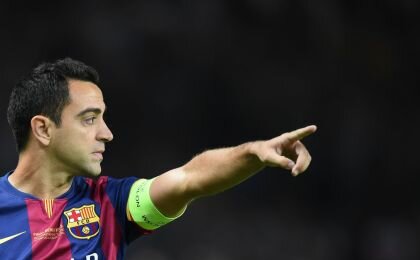 history | 2015-06-07
history | 2015-06-07
Wembley 1992 - The final that changed Barcelona's history
Looking back, the truth is that the 1992 European Cup came into my life a year before that night at Wembley, specifically, during the coach journey to Rotterdam to watch the 1991 Cup Winners’ Cup final between Barcelona and a Manchester United side managed by Sir Alex Ferguson and which counted Mark Hughes among its stars. We had just won the league a few days earlier – the first of four won by Cruyff – which meant that the club would once again compete in the greatest club competition in Europe six years after the disastrous game against Steaua Bucharest in Seville. Somebody on the coach reviewed/gave a summary of the teams who were on the verge of becoming champions of the different European leagues that season, concluding that winning the long sought-after title was actually feasible. The German title wouldn’t be won by Bayern Munich, but Bruno Labbadia’s Kaiserslautern; the Italian champions wasn’t going to be AC Milan or Juventus, but the little-known UC Sampdoria, while the winner of the English league (which had not yet been rebranded as the Premier League) ended up being Arsenal, rather than the ever-present Liverpool. On top of this, Bayern continued their standard policy of recruiting stars who were shining for rival teams by signing Labbadia, meaning that one of the blaugrana’s potential rivals was now noticeably weakened. Later, we would realise that this analysis of the potential feasibility of winning the 1992 European cup was too simplistic and that the teams’ names are not always indicative of their ability on the pitch.
We ended up losing that final in Rotterdam thanks to two goals from Mark Hughes and with Carlos Busquets between the posts, but, a year later, we would once again be in a coach on our way to another final. One of the penya (official fan club) members had requested Johan Cruyff to record a few words of encouragement for our return journey in case we lost, to which the Dutchman responded by wondering how it was possible to go to a final thinking about losing it, “a final is something to be enjoyed, because just getting there is already a great success”, he added. That conversation, told to us by our colleague, was a true insight into Cruyff’s philosophy.
Barça’s journey to the 1992 European Cup final was a tough one. In the first knockout round, they drew a team who were marked by history: the last champion of the now-defunct German Democratic Republic. It was Hansa Rostock, a team who seemed easy enough on paper, but one who led the Bundesliga for the first few match days. The fright came in the last 16, when we drew another German team, Kaiserslautern, who didn’t seem too challenging a hurdle for this Barça side which was flying towards its eternal dream. After a 2-0 victory at the Camp Nou, the tie seemed to be over, but two weeks later, against all predictions, we culés were on the verge of witnessing the blaugrana’s bloody sacrifice on the Betzenberg hill on our televisions. Three minutes into the second half, the Bosnian Demir Hotic had already scored two goals to leave the tie level, and 15 minutes from the end, the Danish Bjarne Goldbaeck scored the third which confirmed Barça’s collapse. For the umpteenth time, the blaugrana ghosts were rearing their heads again to reveal the existence of an invisible wall between this most coveted trophy and the historic Catalan club. But sometimes, these plots have unexpected twists which completely change future reality. This is exactly what happened 89 minutes and 43 seconds into the match, when Koeman sent a free kick into the German area and the tiniest player of all those gathered in that part of the pitch jumped, as if boosted by a spring, to send what seemed like an impossible header into the home team’s net. The next image was of orange shirts running to celebrate a strike which showed the thin line between success and failure. For once, the coin had fallen on Barcelona’s side.
Thanks to Bakero’s miracle in Betzenburg, the blaugrana could now be UEFA’s guinea pig; they were experimenting with the first substantial change in the structure of the European Cup in almost 50 years, which consisted of removing the quarter-finals and semi-finals to implement a round robin of eight teams divided into two groups. In other words, we were witnessing the beginning of what would come to be known as the Champions League the following season. Barça’s group was made up of Dynamo Kiev, that won the Cup Winners' Cup six years ago in which they showed an almost-offensive dominance, and Sparta Prague, an old acquaintance of the Catalans, with whom they met on the way to the final in Seville in 1986, and who, in the previous round, had knocked out Olympique Marseille, current runner-up and overwhelming favorites. The last team in the group was the legendary Benfica, who knocked Arsenal out in stunning fashion after a miraculous comeback at the old Highbury stadium. Barça overcame this stage of the competition, finishing in first place, which allowed them to play in the final. Along the way they secured two victories against Oleg Salenko’s Dynamo Kiev, a hard-fought win at the Camp Nou against Sparta Prague, a goalless draw in Lisbon, a narrow defeat in the as-yet capital of Czechoslovakia and a final win over Benfica at the Camp Nou, which took them to the final. The only defeat, against Sparta, led to the creation of a concept which would go down in the history of blaugrana cosmogony: the entorno (surroundings). That defeat, which made almost everybody nervous, was explained by Johan Cruyff through a new interpretation of a term which already existed. The entorno went on to become the footballing equivalent of what stakeholders are in a company, a vague group of representatives who have interests in the business and who often have some degree of influence at the club.
But what happened in Prague proved to a minor blip, because on May 20th, 1992, Barça would be on the fabled turf of Wembley to carry out their third attempt at the big European competition. However, it was not the Wembley that we know today, but a stadium built in 1923, with imperial airs and a track for greyhound racing.
At 7.15pm GMT, the German Aron Schmidhuber blew whistle to signal the start of the match between FC Barcelona and UC Sampdoria. In the previous round, the Italians knocked out the current champions, a Red Star side containing Dejan Savicevic, Darko Pancev, Vladomir Jugovic and Miodrag Belodedic. They had also knocked out a strong Anderlecht side who relied on a fabulous generation of players: Johnny Bosman, Luc Nilis, Marc de Gryse and Nil Lamptey. Fourth and bottom of the group was the Greek side, Panathinaikos.
What had one year earlier seemed to us like a team without any real pedigree in Italian football, was in reality a strong squad which hosted the best Italian players of that time. UC Sampdoria counted among its ranks a star-studded forward line, I gemilli del gol, or, in other words, the partnership between Gianluca Vialli and Roberto Mancini. Between the posts was Gianluca Pagliuca, one of the great transalpine goalkeepers of the last few decades; the winger Attilio Lombardo, who was just as fast as he lacked in glamour; the veteran centre-half, Pietro Vierchowod, whose successful career spanned over two decades; the Brazilian, Toninho Cerezo, a member of the magical generation of the verdeamarela, together with Zico, Sócrates, Falcão, Eder and Junior. The rest of the starting XI was made up by the defenders Moreno Mannini, Srecko Katenec and Marco Lanna, and the midfielders Fausto Pari and Ivano Bonneti.
As for the blaugrana, they lined up at Wembley with Zubizarreta; Ferrer, Koeman, Nando, Sacristán, Juan Carlos; Bakero, Guardiola, Laudrup; Julio Salinas and Stoichkov.
You couldn’t expect much from those finals at the end of the 1980’s and beginning of the 90’s in terms of excitement, they were usually boring, low-scoring affairs. Despite not straying too far from the predicted script, at least this one allowed us to see a handful of goalscoring opportunities. One of the best came from an outstanding piece of play from Julio Salinas where he managed to squirm his way through the defence, ending with a Stoichkov shot which hit the post. As for the Italians, Vialli had two great chances: a breakaway where, after taking Koeman down with a clear foul which the referee didn’t give, he found himself all alone in the blaugrana area but sent the ball flying over the crossbar, and another where he broke away on the right wing and his well-struck shot skimmed the post. Time went on, the score remained unchanged and the old culé ghosts were once again knocking on the door. Half way through the second half, Julio Salinas was replaced by Goikoetxea, but nothing changed.
When Schmidhuber blew for the end of 90 minutes and the score was intact, the wall that was stopping us from getting our hands on the European Cup seemed higher than ever. On the pitch, we had the feeling that we were experiencing a cruel continuation of the final in Seville; we had now gone 210 minutes without scoring a single goal, adding up both finals. Extra time was drifting away with no changes, and the threat of another penalty shootout was looming over all of us. But everything changed in the sixth minute of the second half of extra time, when yet another unexpected plot twist - just like the one at Kaiserslautern – grabbed Barcelona’s history and put it on the right track. It was an indirect free kick where Stoichkov tapped the ball to Bakero who stopped it and an express train by the name of Koeman struck it as hard as possible to ensure that it overcame the Italian wall, Pagliuca, flew into the net and, in passing, smashed to pieces the wall that had been frustrating us for decades. After the goal, the Dutchman started to run frantically until his teammates were able to catch him and throw their arms around him in celebration. When he found himself on his own again, his first reaction was to cover his face with his hands, as if he had just recognised the magnitude of what he had just done.
I celebrated that goal twice. When I saw the referee give the free kick, my instinct was to hug my friend who was beside me, and he hugged me back. Without even speaking, we both knew that that opportunity which destiny saw fit to grant us had come to change everything. Then came the second celebration, the real one, rolling around the stand, just behind the goals where Koeman performed the miracle which righted all those wrongs throughout culé history.
The ten minutes that passed between the goal and the final whistle were a mixture of satisfaction and fear, with varying proportions depending on where the ball was. Just before we scored, Nadal was about to come on as a substitute, but in light of the new situation, Cruyff brought on Alexanco for Guardiola in order to give the team some much needed solidity. The final whistle was a liberation, like waking up from a nightmare and the realization that we were not cursed, as we had come to believe.
On the journey home, we were bragging about experiencing an historic year: the first European Cup and the first Olympic Games in our city (Barcelona 1992), a sui generis double. “But it’s a pity that the league got away from us”, we were saying. We didn’t know that in a few weeks we would experience the first of the “Tenerife finals” that would win us the league, but that is another story completely.










